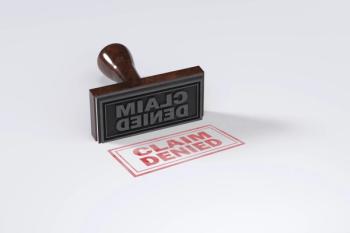
- Pharmaceutical Commerce - September 2018
- Volume 13
- Issue 3
Gimme my data
Ownership of supply chain data is becoming contentious
A good way to get vendors involved in pharma cold-chain services and equipment looking sideways is to ask them to provide the data they collect during shipments and deliveries. In the frictionless, IoT (Internet of Things) world we are entering, everyone is supposed to know everything, all the time. The reality is that dataloggers often require manual data retrieval (as does the datalogger itself); and moreover, only some of the data (such as internal temperature of a parcel or pallet) is known. That’s like being told a partial baseball score is: home team, 2 (riffing on an old George Carlin joke here!).
More data is being collected all the time—but it comes from different sources, and there are different claims over ownership of it. A datalogger owned by a pharma manufacturer, put into a shipment and delivered back at the end of a trip is pretty clear-cut, but these days the data is often automatically transmitted to a carrier’s database. Meanwhile, the 3PLs or freight forwarders involved in managing logistics have their own data systems. More and more, packaging vendors are providing containers with some form of embedded sensors and communications, so they’re asserting their ownership of data, too.
Finally, there are independent communication and data-gathering services (many of which are listed in the “Instrumentation and Data Collection” section of the
All this is heading in a good direction: more data, combined with smart analytics, will lead to more efficient supply chains and safer deliveries of temperature-sensitive products. But there are going to be some bumpy and/or costly roads to travel to get to this point, with various data collectors looking for a fee for tracking a manufacturer’s product. The latest iteration of this activity is to set up a blockchain to deliver data—and that might happen in a way that rationalizes the data-gathering process.
Meanwhile, before we all get carried away with IoT and blockchain buzz, here’s a cautionary note: in 2018, it is still a topic of lively discussion among pharmacists on how to interpret the handwritten scrips of physicians. (E-prescribing, which is in growing use throughout healthcare, is making this go away. Still…) At least one pharmacy publication still devotes a page per issue to the topic, which is usually looked on as a fun puzzle to figure out, until you realize that misinterpreted prescriptions could have deadly consequences. To quote another writer/thinker (William Gibson): “The future is already here; it’s just not very evenly distributed.”
Articles in this issue
over 7 years ago
Cold Chain Suppliers Spotlight Directoryover 7 years ago
A Conversation with Rafik Bisharaover 7 years ago
The 2018 Pharma Cold Chain: more data leads to less riskover 7 years ago
Biopharma cold-chain market forecastNewsletter
Stay ahead in the life sciences industry with Pharmaceutical Commerce, the latest news, trends, and strategies in drug distribution, commercialization, and market access.



